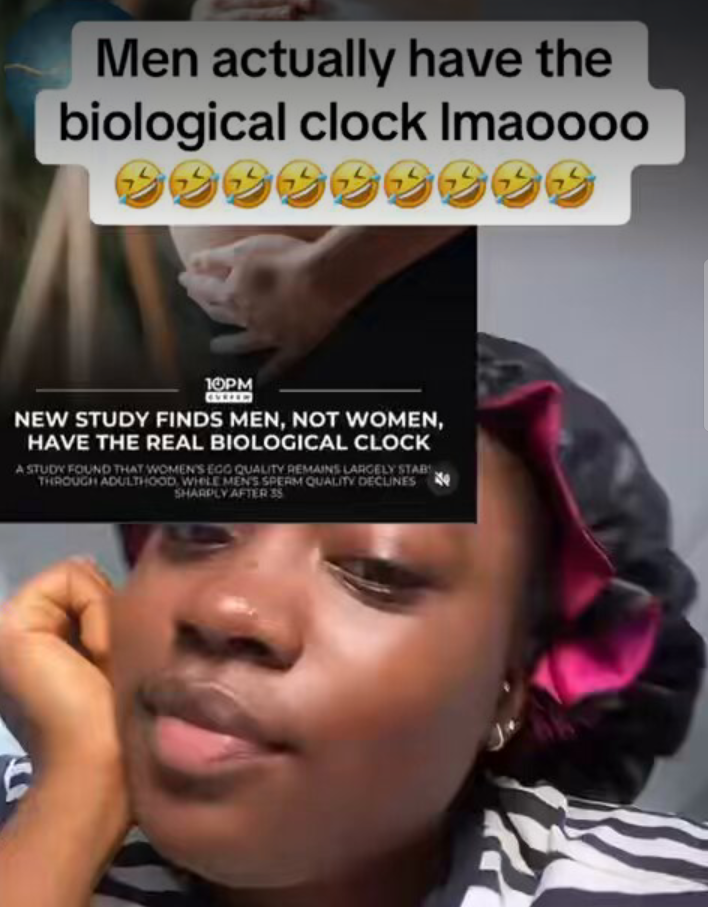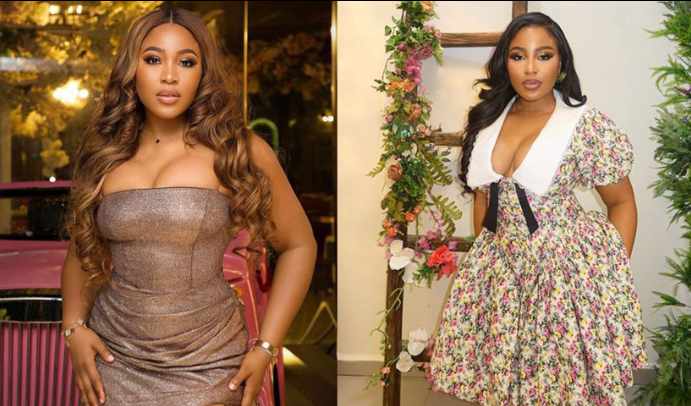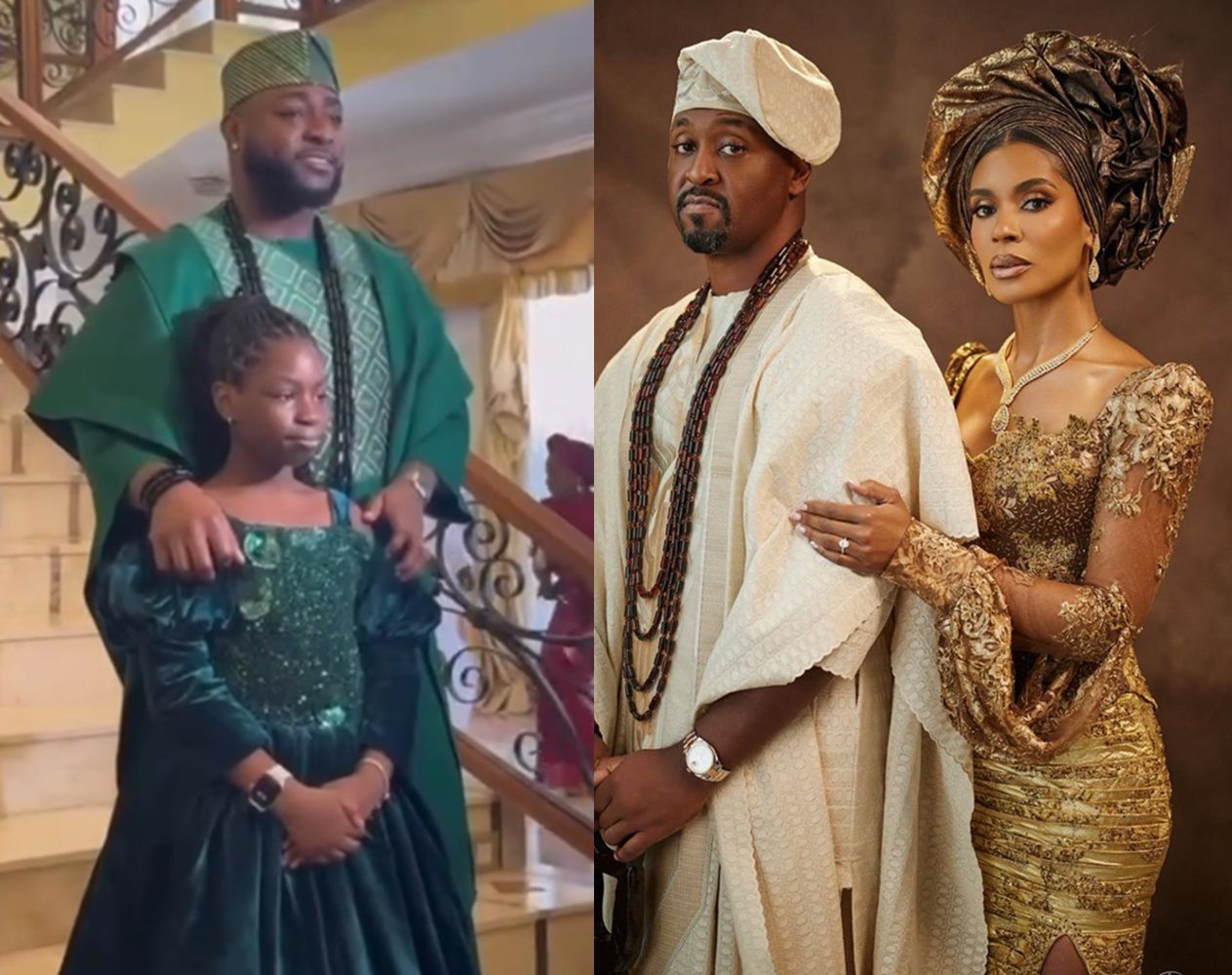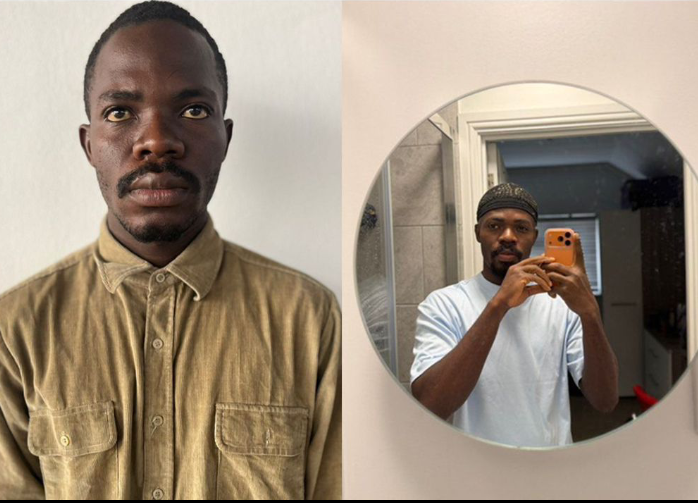
“Your Time Starts Ticking at 30” — Lady Sparks Debate After Claiming Men Have a Biological Clock Too

A young lady has stirred massive reactions across social media after boldly declaring that men, just like women, have a biological clock — and that once a man crosses 30, he’s no longer in his prime. Her statement, which has since gone viral, challenges long-standing societal norms that often associate aging and biological pressure with women rather than men. In her own words, she said, “As a man, your prime is in your 20s. Once you cross 30, your biological clock is ticking and no one wants to settle down with an old man.”
The comment, shared in a viral TikTok video and later reposted on multiple platforms, immediately became a hot topic online, igniting a fierce debate between men and women. Many saw her statement as a controversial reversal of gender expectations, while others agreed that men too should face accountability for the effects of aging and life choices on relationships.
In the now-trending clip, the lady spoke with absolute confidence, insisting that society has given men too much comfort in believing that their desirability automatically increases with age. According to her, this mindset is outdated and unrealistic. She argued that just as women are often reminded that their “market value” decreases after a certain age, men should face the same reality check. “It’s funny how men think they can be 40 and suddenly bag a 25-year-old woman,” she said. “You guys age too, your hairline goes back, your energy drops, and your looks fade. Stop thinking you have forever.”
Her words immediately drew thousands of comments, most of them from men who strongly disagreed. Many argued that men typically become more desirable in their 30s because they’re more financially stable, emotionally mature, and better equipped to handle relationships. “Men’s value increases with resources, not just age,” one user commented. Another added, “A man at 35 is usually more attractive than a broke 25-year-old. Women love stability, not age.”
However, some women supported her viewpoint, suggesting that times are changing and that younger women are no longer attracted to older men simply for financial reasons. “We are making our own money now,” one woman wrote. “We want youthful energy, not men who are already complaining about back pain and midlife crises.”
The viral statement has since triggered a broader conversation about gender expectations, aging, and the concept of “prime years” in relationships. For decades, pop culture and social conditioning have portrayed men as aging gracefully while women supposedly “expire” with time — an idea deeply rooted in traditional gender roles. But this new conversation flips the script entirely, suggesting that men, too, might be on a biological and social clock that affects their relationship desirability.
Interestingly, some experts have weighed in on the debate. While the notion of a male “biological clock” has long been debated, scientific studies have shown that male fertility and sperm quality can decline with age. Medical researchers have observed that as men get older, the chances of genetic mutations in sperm increase, which can lead to fertility challenges or complications during conception. Though not as widely discussed as the female biological clock, it’s an issue that’s beginning to gain more attention in modern conversations about reproductive health.
Beyond biology, social media users highlighted how the concept of “prime” also extends to lifestyle and emotional health. Several commenters noted that many men in their 20s waste those years chasing temporary pleasures instead of building meaningful careers or relationships. By the time they hit 30 or 35, some of them begin to feel left behind or less confident about settling down. “She’s not entirely wrong,” a commenter wrote. “Most guys don’t realize that their value isn’t just about money — it’s also about how healthy, mentally stable, and emotionally available they are. That declines if you don’t work on yourself early.”
Still, many men fired back, accusing the lady of promoting “age shaming” and using the same double standards women have fought against for decades. Some argued that the statement promotes unrealistic timelines and pressures that could harm both genders. “Now women want to give men clocks too?” one man joked. “We can’t all be on timers like microwaves. Life is about growth, not deadlines.”
The discussion has since evolved into one of the most polarizing gender debates of the week, with social commentators, influencers, and relationship coaches joining in. Some have used the opportunity to call for balance, arguing that no one — male or female — should be defined by age alone. Relationship coach Bisi Adewale, in a recent podcast, noted that both men and women need to understand the seasons of their lives and invest in self-development early. “Your 20s should be for building, not wasting,” he said. “If you take care of yourself physically, emotionally, and financially, your 30s and 40s will still be your prime.”
Despite the backlash, the young lady who started the firestorm has doubled down on her comments. In a follow-up post, she clarified that she wasn’t attacking men but simply pointing out what she believes is an ignored truth. “Men think time is on their side, but it’s not,” she wrote. “There’s nothing attractive about a man who’s 35 with no plan, no energy, and no direction. Women are evolving, and we’re not settling for that anymore.”
Her words struck a nerve among those who feel modern dating standards have shifted significantly. Gone are the days when a man’s age alone symbolized maturity or financial success. In today’s era, many women seek emotional intelligence, fitness, ambition, and lifestyle compatibility — qualities that often fade when men neglect self-care or personal growth.
As the debate continues, it’s clear that conversations about age, gender, and desirability are becoming more nuanced. The modern generation is redefining what it means to be “in your prime.” No longer is it just about age; it’s about readiness — mentally, emotionally, and financially. The viral statement may have sounded harsh, but it reflects a broader societal shift where accountability now cuts both ways.
Whether or not men truly have a “biological clock,” one thing is certain: time affects everyone differently. And as relationships evolve in an era of independence and self-awareness, the pressure to “settle down” is no longer a one-sided burden. The lady’s message — controversial as it may be — serves as a reminder that no gender is immune to the ticking hands of time.
In the end, her words have done more than spark outrage; they’ve forced an overdue conversation about balance, effort, and self-awareness. Perhaps her statement isn’t so much an attack on men as it is a challenge to rethink the myth of male timelessness. Because maybe, just maybe, the real message isn’t that men’s clocks are ticking — but that everyone’s is.
As a man your prime is in your 20s, once you cross over 30, your biological clock is ticking and no one wants to settle down with an old man — Lady says pic.twitter.com/cG6hRMd9Vi
— TENIOLA (@Teeniiola) November 4, 2025


